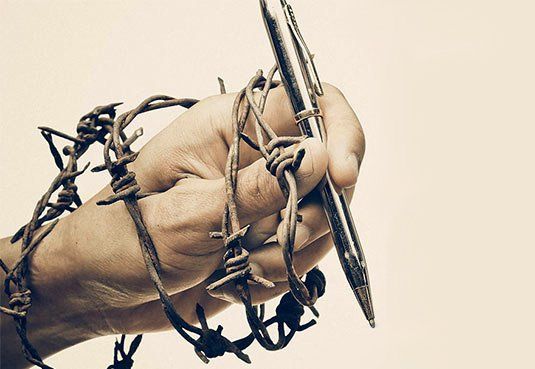Voices of the Incarcerated - Prison Writers
Prison literature has developed as a genre on its own, acting as a lifeline to those incarcerated who use it

American novelist Jack London, best known for adventure novels Call of the Wild and White Fang, is also the author of a short story called Pinched: A Prison Experience. In Pinched, London wrote about being automatically sentenced to 30 days in prison with no chance to defend himself or even plead innocent or guilty. While sitting in the courtroom he thought to himself, "Behind me were the many generations of my American ancestry. One of the kinds of liberty those ancestors of mine fought and died for was the right of trial by jury. This was my heritage, stained sacred by their blood…"
London's short story is a prominent example of Prison Literature, a genre that's come to stand on its own. Prison literature written in America is of specific interest to scholars who note that pieces which detail the brutality of life behind bars poses an interesting question about American society: "Can these things really happen in prosperous, freedom-loving America?" As America is globally perceived as being a “democratic haven” and the “land of freedom,” literature that is borne from American prisons presents a contrast to popularly-held and mythologized impressions about the country's founding principles.
American journalist Tom Wicker said of Prison Literature, “What happens inside the walls inevitably reflects the society outside." Not only do readers get a first-hand glimpse into the world inside the walls and gain insight into the thoughts and feelings of prisoners, they also gain a clearer vision of the society which exists outside the prison walls and how it treats and affects those whom they place within.
Prison Writers is an organization dedicated to offering uncensored, personal stories and thoughtful essays from incarcerated citizens across the country about what really goes on inside the secretive world of prison corrections. What happens in prison has always stayed in prison, and Prison writers aim to change that. They believe crucial voices are missing in the ongoing debate devoted to fixing the broken prison system - the very people who live there.
"When we started Prison Writers, we had no idea it would become a lifeline for so many of our writers. We’ve received dozens and dozens of letters from prisoners thanking us for giving them a sense of purpose, something they thought they’d never find again. They love knowing someone on the outside cares about them and their message. They love having a “boss” who gives them deadlines. And they feel buoyed knowing they’re part of a greater good, in a community of their peers, working together to change prison policies."
To support this organization and the incarcerated persons sharing their voices from inside, please visit their website Prison Writers.










